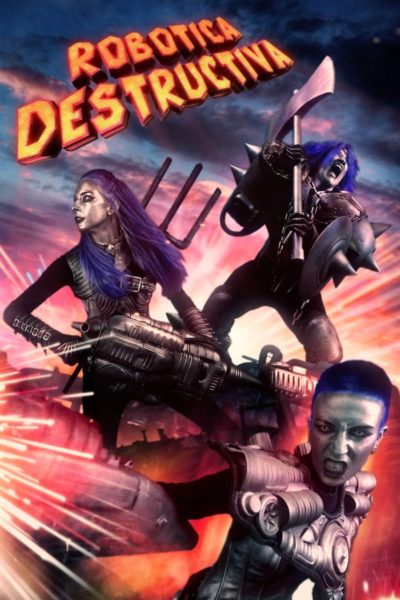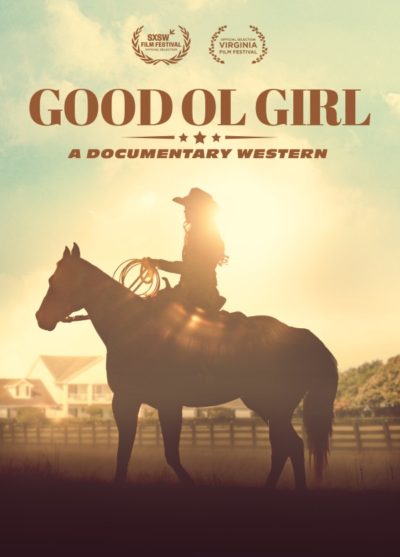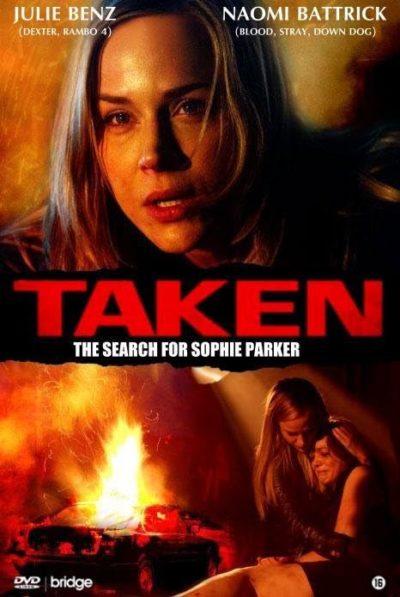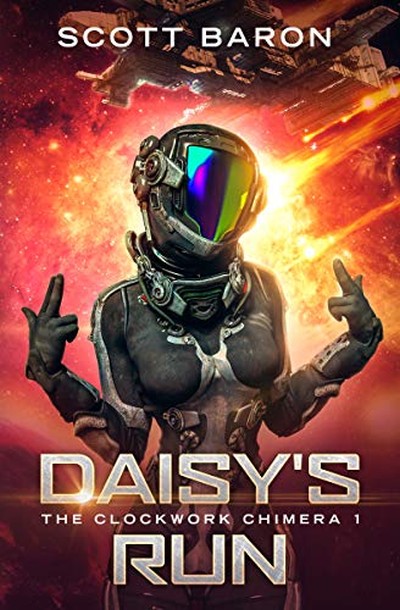★★
“Technically marvellous. But only technically.”
 To bring out one of my go-to phrases, if I was eleven years old, and hopped up off my face on candy-floss, this would probably be one of my favorite movies. Instead, it’s the kind of film which apparently caused my brain to shut off as some kind of defense mechanism. I’m not kidding. Ten minutes into my first viewing attempt, I suddenly fell asleep. I think my mind may have experienced the cerebral equivalent of a blue screen of death and ran out of memory, forcing a shutdown. For this is just an insane overload of a movie, all the more so considering it was a labour of love, assembled over a period of multiple years.
To bring out one of my go-to phrases, if I was eleven years old, and hopped up off my face on candy-floss, this would probably be one of my favorite movies. Instead, it’s the kind of film which apparently caused my brain to shut off as some kind of defense mechanism. I’m not kidding. Ten minutes into my first viewing attempt, I suddenly fell asleep. I think my mind may have experienced the cerebral equivalent of a blue screen of death and ran out of memory, forcing a shutdown. For this is just an insane overload of a movie, all the more so considering it was a labour of love, assembled over a period of multiple years.
Gaffin and pals are part of a rock band out of Florida, called The Killer Robots, whose schtick involves dressing in (undeniably impressive) robot costumes, and have also made films like The Killer Robots and the Battle for the Cosmic Potato. Maybe if I’d seen those, this might have made sense, instead of being the incomprehensible gibberish it seemed. As far as I can determine, the plot is this. The Killer Robots steal the Arculon Destroyer from planet Radia, leaving it defenseless. To retake it, the rulers defrost a trio of android warriors: Mytra (Belko), Azalla (Martin), and Luna (Theron), known as the Destructivas. Mayhem ensues. Which is my way of saying “I’m not sure what happens thereafter.” Oh, except there’s time-travel. Definitely time-travel.
To say this is loosely-plotted, would imply there was any plotting going on at all. There’s no shortage of stuff happening, to be sure. However, very little of it makes coherent sense on more than the shallowest of levels. Characters arrive, do something or more or less relevance, and then vanish without explanation. I was somewhat amused on occasion, such as the way the Destructivas keep getting arrested, convicted and sent to space prison. Or there’s the “peacekeeper” chasing after them whose hand turns into a literal hammer. It’s just that it feels as if Gaffin simply hurled every idea he could think of into a blender, flicked the on-switch and committed the results to high-quality digital video.
Make no mistake, there’s a strong visual aesthetic here, perhaps best described as Tron, remade for fifty bucks after a hit of industrial-strength weed. The poster above is actually a fairly decent representation of the lurid delights in question, and I can’t fault this side of things. However, the lack of characterization, and performances which largely feel like having Chris Farley yelling in your face for a hour, outstay their welcome and become wearing. I would say, it’s the kind of thing which might work better as a music promo. Except, after the credits, that’s exactly what we get: a promo for The Killer Robots. And it’s kinda dull, with the band just wandering round in their admittedly impressive costumes. I still might buy a ticket for a live show. Their movies? Not so much.
Dir: Sam Gaffin
Star: Amber Belko, Torie Martin, Kristal Theron, Sam Gaffin





 I’d be the first to admit, those issues likely extend beyond the characters in the movie, and probably extend to the script writers, because there are certainly… well, let’s just say, some novel concepts here. The heroine is Nina Nowak (Grochowska), a former Special Ops soldier, who had to fake her own death and give her son Maks up to adoption, for both their security. She’s been keeping an eye on Maks (Delikta) from afar, but after he’s abducted at the request of a gangster Nina took down, she needs to become considerably more hands-on. Rescuing Maks, however, will bring her into contact with a number of rather odd people, on both sides of the law.
I’d be the first to admit, those issues likely extend beyond the characters in the movie, and probably extend to the script writers, because there are certainly… well, let’s just say, some novel concepts here. The heroine is Nina Nowak (Grochowska), a former Special Ops soldier, who had to fake her own death and give her son Maks up to adoption, for both their security. She’s been keeping an eye on Maks (Delikta) from afar, but after he’s abducted at the request of a gangster Nina took down, she needs to become considerably more hands-on. Rescuing Maks, however, will bring her into contact with a number of rather odd people, on both sides of the law. There’s an interesting idea here, at least. As a young child, Elena (Ayala) has to watch as her mother and brother are killed by crime boss babe Maeve (McComb), after her father (Pardo) made the ill-advised decision to try and steal from her. It’s particularly awkward, since Maeve made him choose which of his two children should live… then killed the one he picked, his son. This Sophie-like choice has, understandably, left the father-daughter relationship somewhat strained, to put it mildly. 15 years later, Elena is a druggie, who robs a liquor store and gets sent to jail as a result. Except, this incarceration is entirely deliberate, because it’s the facility in which Maeve is now serving time, giving Elena her long-awaited chance for revenge.
There’s an interesting idea here, at least. As a young child, Elena (Ayala) has to watch as her mother and brother are killed by crime boss babe Maeve (McComb), after her father (Pardo) made the ill-advised decision to try and steal from her. It’s particularly awkward, since Maeve made him choose which of his two children should live… then killed the one he picked, his son. This Sophie-like choice has, understandably, left the father-daughter relationship somewhat strained, to put it mildly. 15 years later, Elena is a druggie, who robs a liquor store and gets sent to jail as a result. Except, this incarceration is entirely deliberate, because it’s the facility in which Maeve is now serving time, giving Elena her long-awaited chance for revenge. If you’re even slightly familiar with the Star Trek universe, you’ll be aware of the Prime Directive. While never explicitly stated, it’s the rule which prohibits interfering with the development of less technologically advanced civilization, in particular those that are not capable of space travel, or are unaware of the existence of life beyond their own planet. It’s a key concept in this book too, though is meshed together with a religious theme – not something often found in this kind of science fiction.
If you’re even slightly familiar with the Star Trek universe, you’ll be aware of the Prime Directive. While never explicitly stated, it’s the rule which prohibits interfering with the development of less technologically advanced civilization, in particular those that are not capable of space travel, or are unaware of the existence of life beyond their own planet. It’s a key concept in this book too, though is meshed together with a religious theme – not something often found in this kind of science fiction. The latest take on one of Britain’s greatest historical heroines has come in for a fair bit of critical flak. But I really did not think it was all that bad. Sure, it plays fast and loose with historical accuracy (Christianity wasn’t a thing in Britain at the time). However, we’re dealing with someone about whom there is very little reliable record. Why not throw in chunks of the Arthurian mythos, if it might make for a more interesting end product? The usual basics are there. Queen of the Iceni Boudica (Kurylenko) loses her husband (Standen), and subsequently falls foul of the occupying Roman Empire. She raises an army, leads a rebellion, kicks Roman butt for a while, but eventually goes down, fighting. That’s the Cliff Notes version.
The latest take on one of Britain’s greatest historical heroines has come in for a fair bit of critical flak. But I really did not think it was all that bad. Sure, it plays fast and loose with historical accuracy (Christianity wasn’t a thing in Britain at the time). However, we’re dealing with someone about whom there is very little reliable record. Why not throw in chunks of the Arthurian mythos, if it might make for a more interesting end product? The usual basics are there. Queen of the Iceni Boudica (Kurylenko) loses her husband (Standen), and subsequently falls foul of the occupying Roman Empire. She raises an army, leads a rebellion, kicks Roman butt for a while, but eventually goes down, fighting. That’s the Cliff Notes version.  This documentary takes a look into the lives of three women in Texas, who are all operating in the male-dominated world of ranching. Some were born into it, while others came to it through choice. In particular, Mandy Dauses falls into the latter category, having left her East-coast home because she felt that Texas represented the best chance to fulfill her ambition of becoming a ranch manager. On the other hand, Sara Lemoine Knox is struggling to balance what she feels is an obligation to carry on in the family business, with her own goal of becoming a lawyer. Meanwhile, Martha Santos is looking to find work in that line, but without her own property, is finding it a challenge.
This documentary takes a look into the lives of three women in Texas, who are all operating in the male-dominated world of ranching. Some were born into it, while others came to it through choice. In particular, Mandy Dauses falls into the latter category, having left her East-coast home because she felt that Texas represented the best chance to fulfill her ambition of becoming a ranch manager. On the other hand, Sara Lemoine Knox is struggling to balance what she feels is an obligation to carry on in the family business, with her own goal of becoming a lawyer. Meanwhile, Martha Santos is looking to find work in that line, but without her own property, is finding it a challenge. For a Lifetime Original Movie, this is actually close to the best of its kind I’ve seen., but it is surely docked points for being a thoroughly shameless knock-off of a certain Liam Neeson movie, all the way down to the title. As there, we have an American abroad, searching for a teenage daughter who has been kidnapped by even more foreign sex-traffickers. They will stop at nothing –
For a Lifetime Original Movie, this is actually close to the best of its kind I’ve seen., but it is surely docked points for being a thoroughly shameless knock-off of a certain Liam Neeson movie, all the way down to the title. As there, we have an American abroad, searching for a teenage daughter who has been kidnapped by even more foreign sex-traffickers. They will stop at nothing –  RIP James Caan. I mention his passing, because by coincidence I watched this the same day, and there are a couple of nods to Misery, one of Caan’s most famous works. There’s a character called Mrs. Wilkes, and we also get an explicitly acknowledged re-enactment of
RIP James Caan. I mention his passing, because by coincidence I watched this the same day, and there are a couple of nods to Misery, one of Caan’s most famous works. There’s a character called Mrs. Wilkes, and we also get an explicitly acknowledged re-enactment of  By that, I am referring to the unnamed heroine of this film, because she doesn’t have to leave the house. She works as a hitwoman for Yakuza boss Yasuhiro Kokubu (Katô), and he delivers the targets to the front-door of her rural home, on the pretext of her being their entertainment. She then gives them the Black Widow treatment, having sex with them, before a couple of post-coital shots. She barely has to get out of bed, literally. In some way this makes sense, since she’s blind – I guess it’s nice to see the disabled being given equal opportunities in the assassin field. But she’s not exactly happy with her lot; her cleaner and handler Masahiko Yoshizawa (Murai) is concerned about her spiralling into alcoholism.
By that, I am referring to the unnamed heroine of this film, because she doesn’t have to leave the house. She works as a hitwoman for Yakuza boss Yasuhiro Kokubu (Katô), and he delivers the targets to the front-door of her rural home, on the pretext of her being their entertainment. She then gives them the Black Widow treatment, having sex with them, before a couple of post-coital shots. She barely has to get out of bed, literally. In some way this makes sense, since she’s blind – I guess it’s nice to see the disabled being given equal opportunities in the assassin field. But she’s not exactly happy with her lot; her cleaner and handler Masahiko Yoshizawa (Murai) is concerned about her spiralling into alcoholism. By the time I reached the end of this, what stood out most is how far we had come from the initial scenario. We start way out in deep space, where the crew of the Váli are awoken from their cryo stasis after the ship suffers significant damage as a result of a hull breach. By the end, everything has changed dramatically. The situation back on Earth, the mission of the Váli, and the very nature of the heroine, 25-year-old comms and electronics specialist, Daisy Swathmore, are are all radically different from what they initially seem to be. It’s basically a dramatic arc for the entire human race.
By the time I reached the end of this, what stood out most is how far we had come from the initial scenario. We start way out in deep space, where the crew of the Váli are awoken from their cryo stasis after the ship suffers significant damage as a result of a hull breach. By the end, everything has changed dramatically. The situation back on Earth, the mission of the Váli, and the very nature of the heroine, 25-year-old comms and electronics specialist, Daisy Swathmore, are are all radically different from what they initially seem to be. It’s basically a dramatic arc for the entire human race.